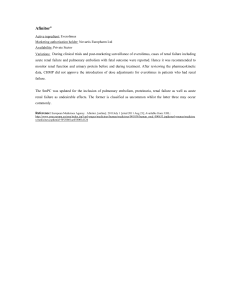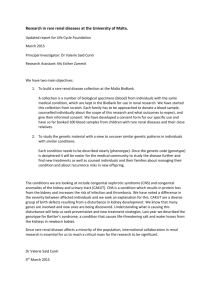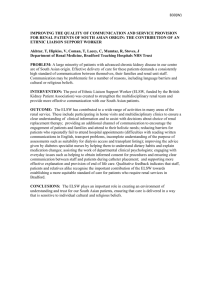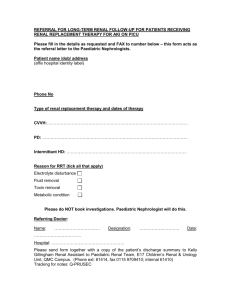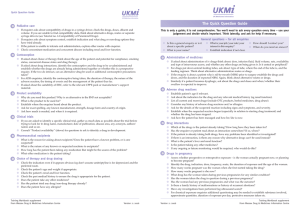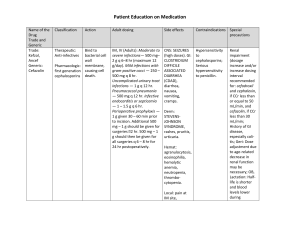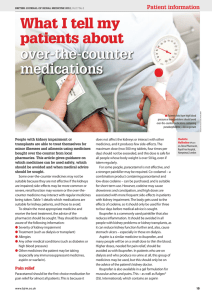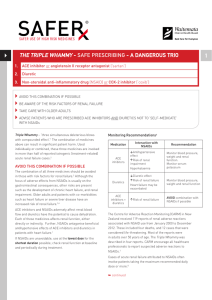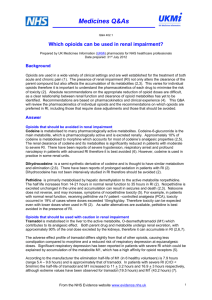Medicines in Chronic Kidney Disease
advertisement
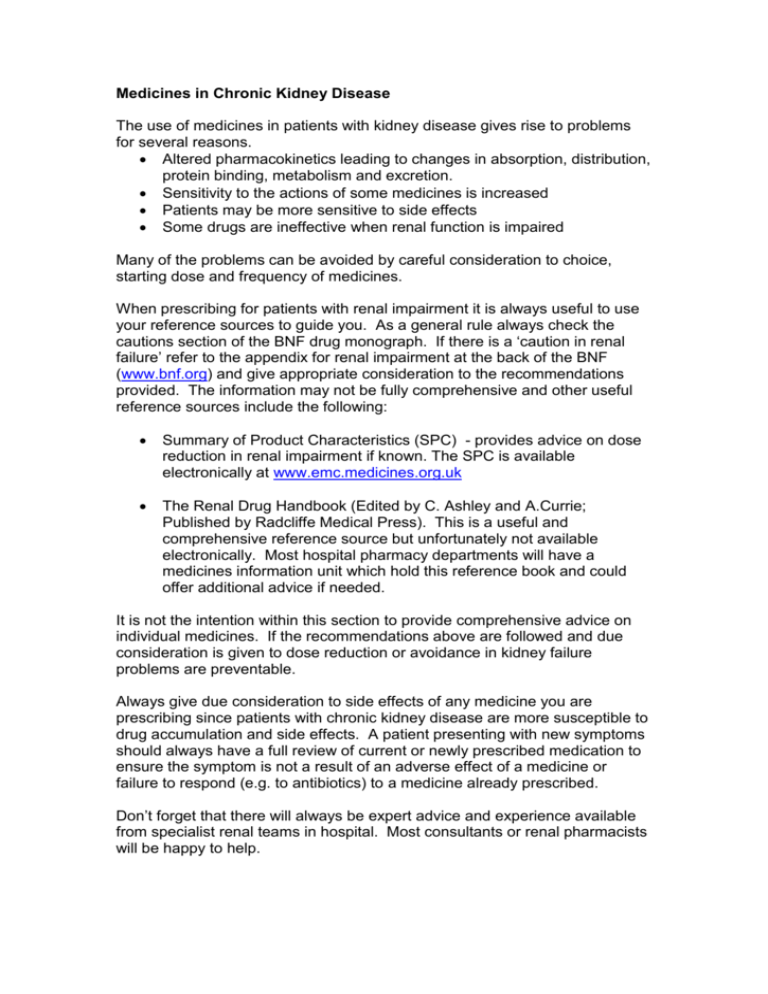
Medicines in Chronic Kidney Disease The use of medicines in patients with kidney disease gives rise to problems for several reasons. Altered pharmacokinetics leading to changes in absorption, distribution, protein binding, metabolism and excretion. Sensitivity to the actions of some medicines is increased Patients may be more sensitive to side effects Some drugs are ineffective when renal function is impaired Many of the problems can be avoided by careful consideration to choice, starting dose and frequency of medicines. When prescribing for patients with renal impairment it is always useful to use your reference sources to guide you. As a general rule always check the cautions section of the BNF drug monograph. If there is a ‘caution in renal failure’ refer to the appendix for renal impairment at the back of the BNF (www.bnf.org) and give appropriate consideration to the recommendations provided. The information may not be fully comprehensive and other useful reference sources include the following: Summary of Product Characteristics (SPC) - provides advice on dose reduction in renal impairment if known. The SPC is available electronically at www.emc.medicines.org.uk The Renal Drug Handbook (Edited by C. Ashley and A.Currie; Published by Radcliffe Medical Press). This is a useful and comprehensive reference source but unfortunately not available electronically. Most hospital pharmacy departments will have a medicines information unit which hold this reference book and could offer additional advice if needed. It is not the intention within this section to provide comprehensive advice on individual medicines. If the recommendations above are followed and due consideration is given to dose reduction or avoidance in kidney failure problems are preventable. Always give due consideration to side effects of any medicine you are prescribing since patients with chronic kidney disease are more susceptible to drug accumulation and side effects. A patient presenting with new symptoms should always have a full review of current or newly prescribed medication to ensure the symptom is not a result of an adverse effect of a medicine or failure to respond (e.g. to antibiotics) to a medicine already prescribed. Don’t forget that there will always be expert advice and experience available from specialist renal teams in hospital. Most consultants or renal pharmacists will be happy to help.
